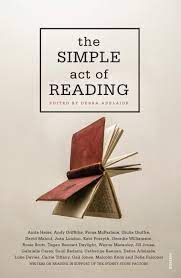A Visible Reading and Writing Life Delivers Teachers Power and Influence

In this collection of stories, writers talk about the authors they revered as children; the stories and poems that shaped their own work. A teacher I was working with as a literacy consultant, once boldly announced, ‘ I don’t want my students to know anything about my life. I am just here to teach.’ The comment disturbed me on a number of levels. It represented no sense of the need to bond with students. I had the impression the teacher was simply a forlorn imitation of a living, breathing teacher. When we make the effort to bond with students, we consciously humanize ourselves. We connect with our students more effectively when we provide insights as to how we operate as lifelong learners. In order to do this, we need to give something of ourselves and that requires an emotional commitment, not just the rolling out of curriculum. It continues to surprise me how many of my colleagues conduct secret reading and writing lives. Literate lives hidden from their students a...


